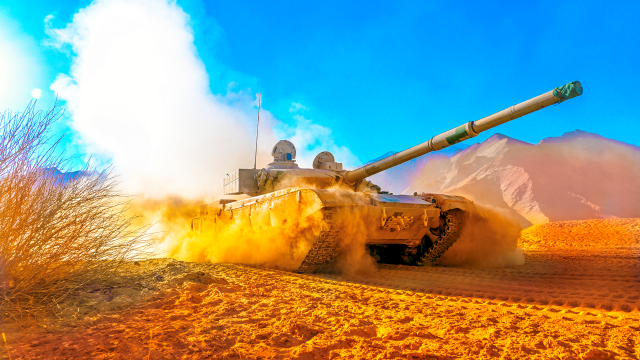China is facing off with the Great Wall of Capitalism, in a competition unlike any other since the end of the Cold War. President Xi Jinping portrays it as a rising China reclaiming its rightful place in the world by challenging and defeating a declining West. Ramping up the competition since assuming office in 2012, Xi is determined to take on American dominance across the Indo-Pacific. A Jamestown Foundation report released this week, examines the possibility that this new Sino-American Cold War could turn “hot” over issues such Taiwan.
Although the US, NATO, Japan, South Korea, and Australia are working together, China has allied itself with Russia and other non-democratic states, including Russia, North Korea, Iran, and Pakistan. China is using these states to prevent the formation of an Asian style NATO in the Indo-Pacific, according to Willy Wo-Lap Lam of the Jamestown Foundation. He says that the Chinese response has been to continue supporting their long-time quasi-ally Russia, which has further inflamed positions surrounding Russia’s war in Ukraine.
It appears the US and China are on an irreversible spiral despite protestations from both sides about its nonexistence. President Joe Biden and Secretary of State Antony Blinken have publicly state the US is “not looking for a Cold war,” although Blinken last year in a speech did say “China is the only country with both the intent to reshape the international order – and, increasingly, the economic, diplomatic, military and technological power to do it.” The reality is that the United States and China are involved in a Cold War. In Beijing Lam says that Xi warned that “efforts to form cliques [of nations] and to foment a ‘new Cold War,’ ostracism and intimidation… will only push the world toward disintegration and even confrontation.” He adds that a number of Chinese academics blame Washington for escalating tensions and creating a self-fulfilling prophesy. What China claims is dependent on the audience, according to the Jamestown Foundation report. It notes that at the G20 meeting in Bali last November, Xi vowed to Biden that the PRC had no intention of challenging American supremacy. “This wide world can accommodate the developments of China and the US,” according to the Chinese president.
At internal meetings of the CCP leadership, however, Xi uses revolutionary lines from Mao proclaiming “the East is rising and the West is declining.” Lam says that Xi considers the “Chinese program and Chinese path” so superior that it is only a matter of a decade or so before the PRC can claim superpower status – as well as being the final arbiter of events first in Asia and then the rest of the world. The recent Chinese surveillance balloons that flew over the United States are, according to Lam, an attempt by Beijing that demonstrate their military and intelligence clout. In the past Xi has provided a timetable for overtaking the US. He says China will overtake the US as the world’s sole superpower between 2035 and 2049. It is significant that that the latter dates marks 100 years since the founding of the PRC.
Other American allies, according to the report, have also raised the level of their concern about the “China threat” to unprecedentedly high levels. It notes British Prime Minister Rishi Sunak said he supported a hardening of diplomatic relations with Beijing, since China posed a “systemic challenge to our values and interests.” One difference between the current environment and that of the first Cold War is that for a long time the US was enamored with China. It lasted until a decade ago.
The Jamestown Foundation report argues that the “’China Fantasy,’ which underpinned a policy of engagement largely followed by presidents Jimmy Carter, Bill Clinton, and George W. Bush, was that as the PRC became rich, its citizens would follow the rebellious students in Tiananmen Square and regard the Statue of Liberty as the icon of freedom and justice.” In a pivotal moment, President Clinton even encouraged China to join the World Trade Organization. China’s culture is one that values long-term planning. Xi is a nationalist with the goal of creating a “great renaissance of the Chinese nation.”
The PRC’s global influence, however, is much more extensive than that of the former Soviet Empire. China has extensive resources, a large economy, and through its Belt and Road Initiative (BRI), is willing to weaponize trade to achieve it. Lam points out that the first five-year BRI budget of $1 trillion was seven times the amount the US spent on the Marshall Plan after WWII. Together with its soft power influence operations and world-wide propaganda world there are solid reasons for the democratic West needs to be concerned about China. The Great Wall of Capitalism will need to be strong in the coming years as many in the intelligence community believe that China sees its window of opportunity beginning to close. That makes Xi and China more dangerous and less predictable.
Daria Novak served in the U.S. State Dept.
Photo: Chinese tank on practice maneuvers (China Defence Ministry)
